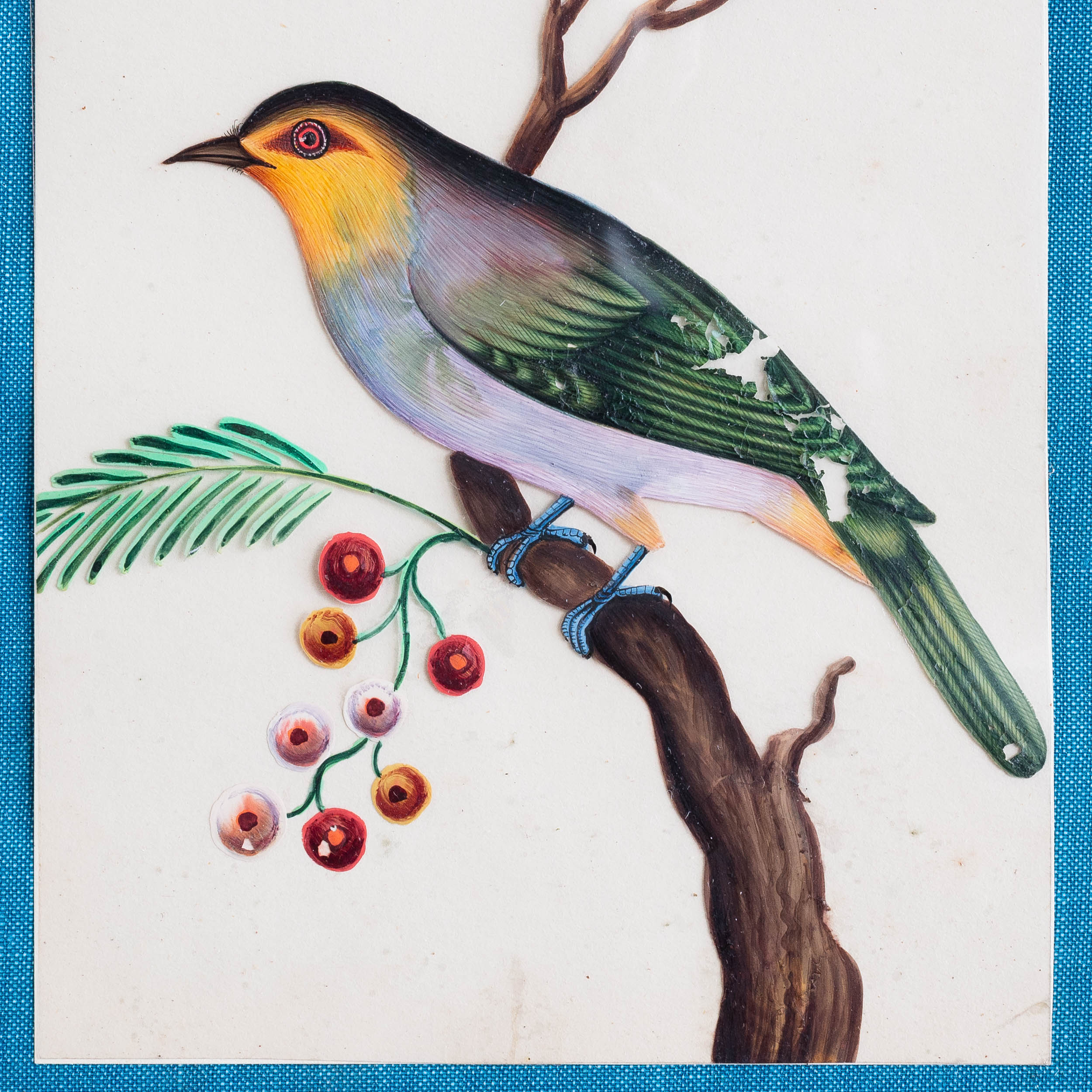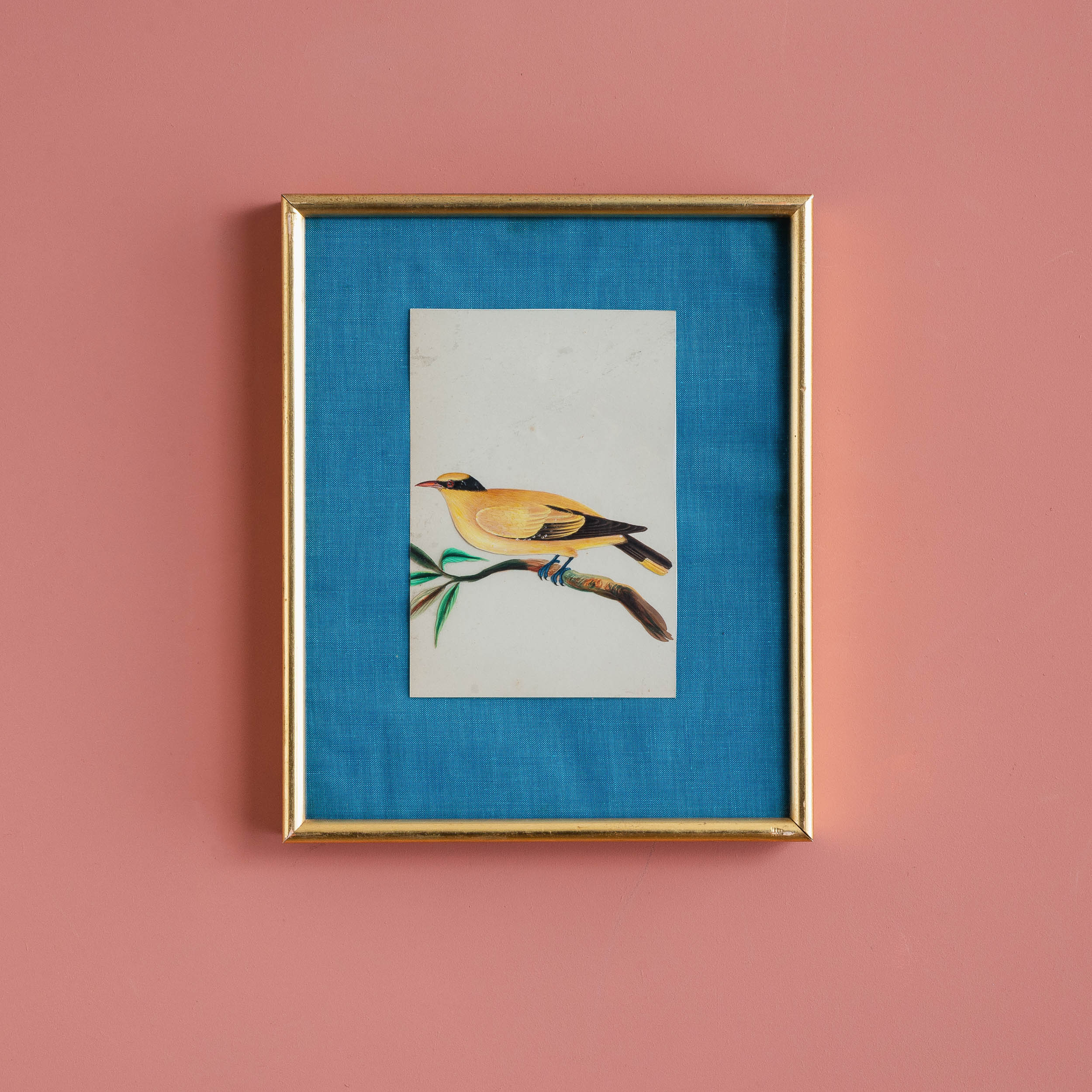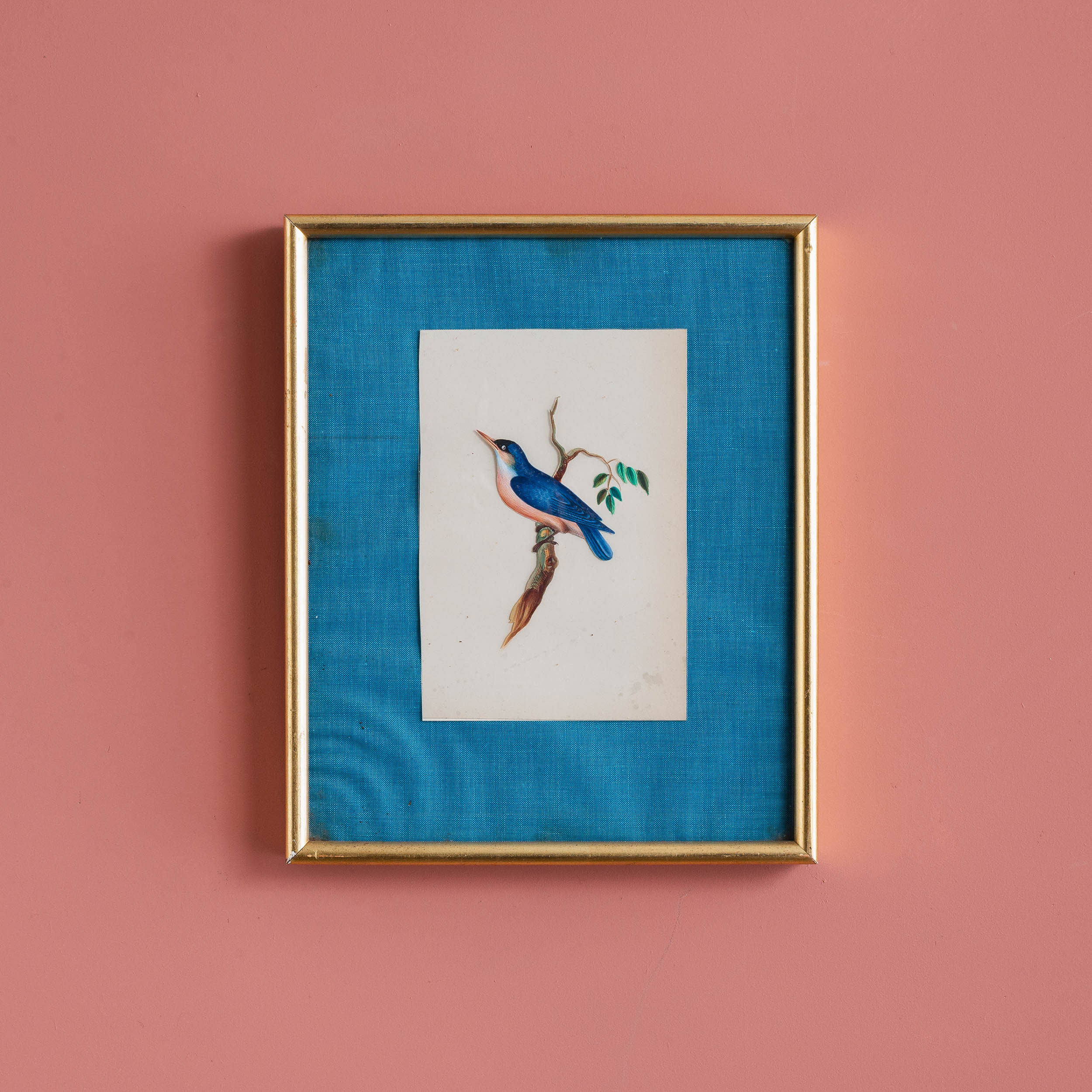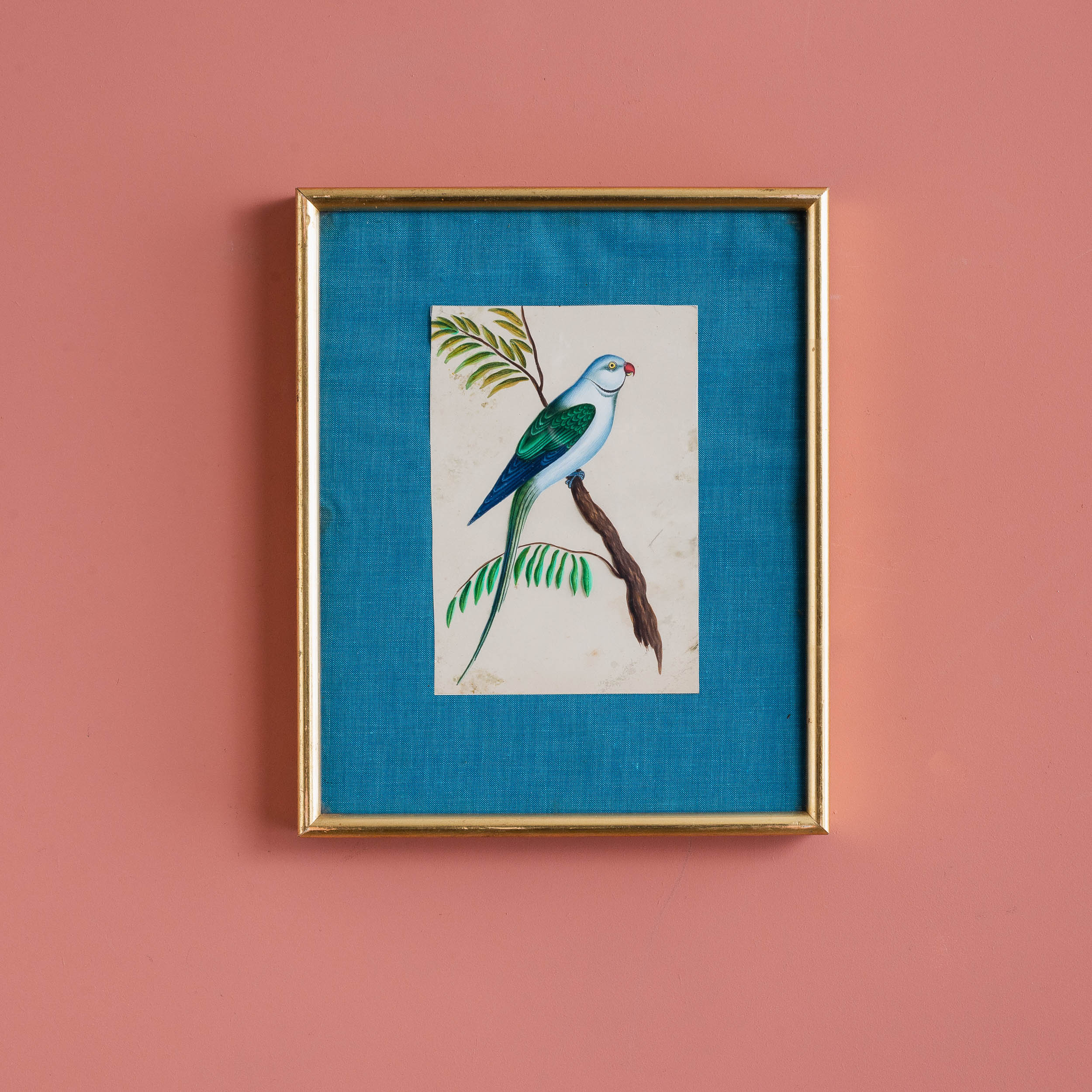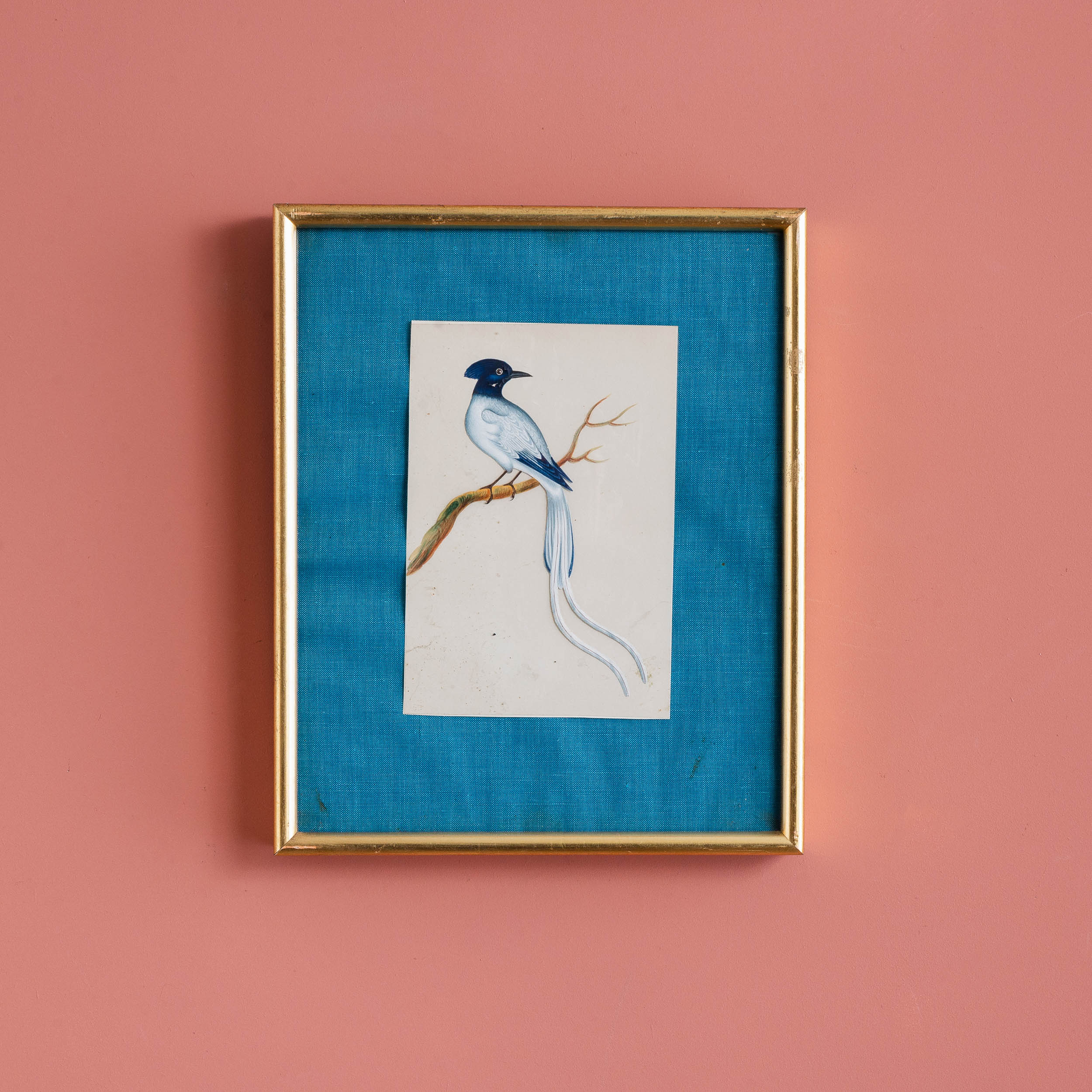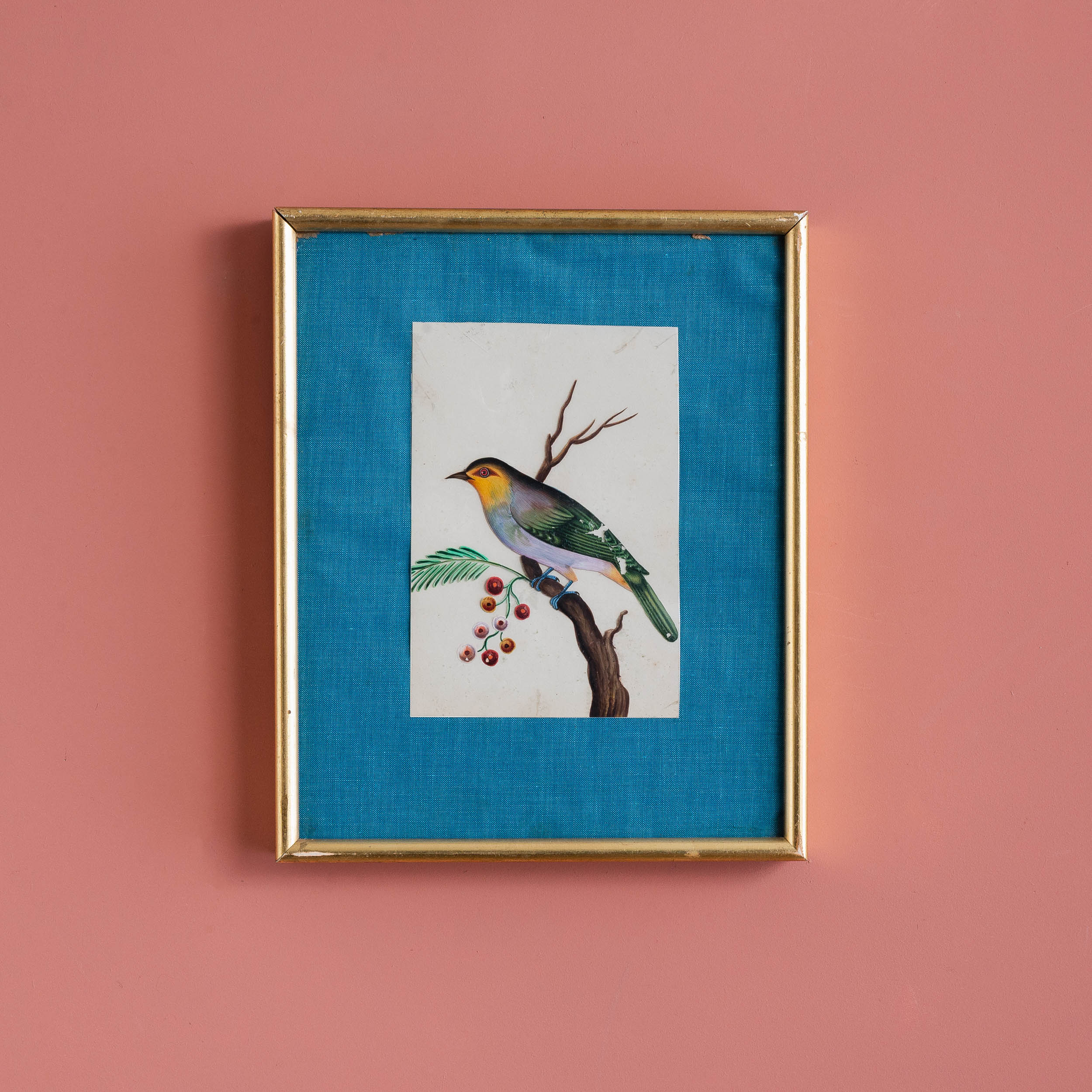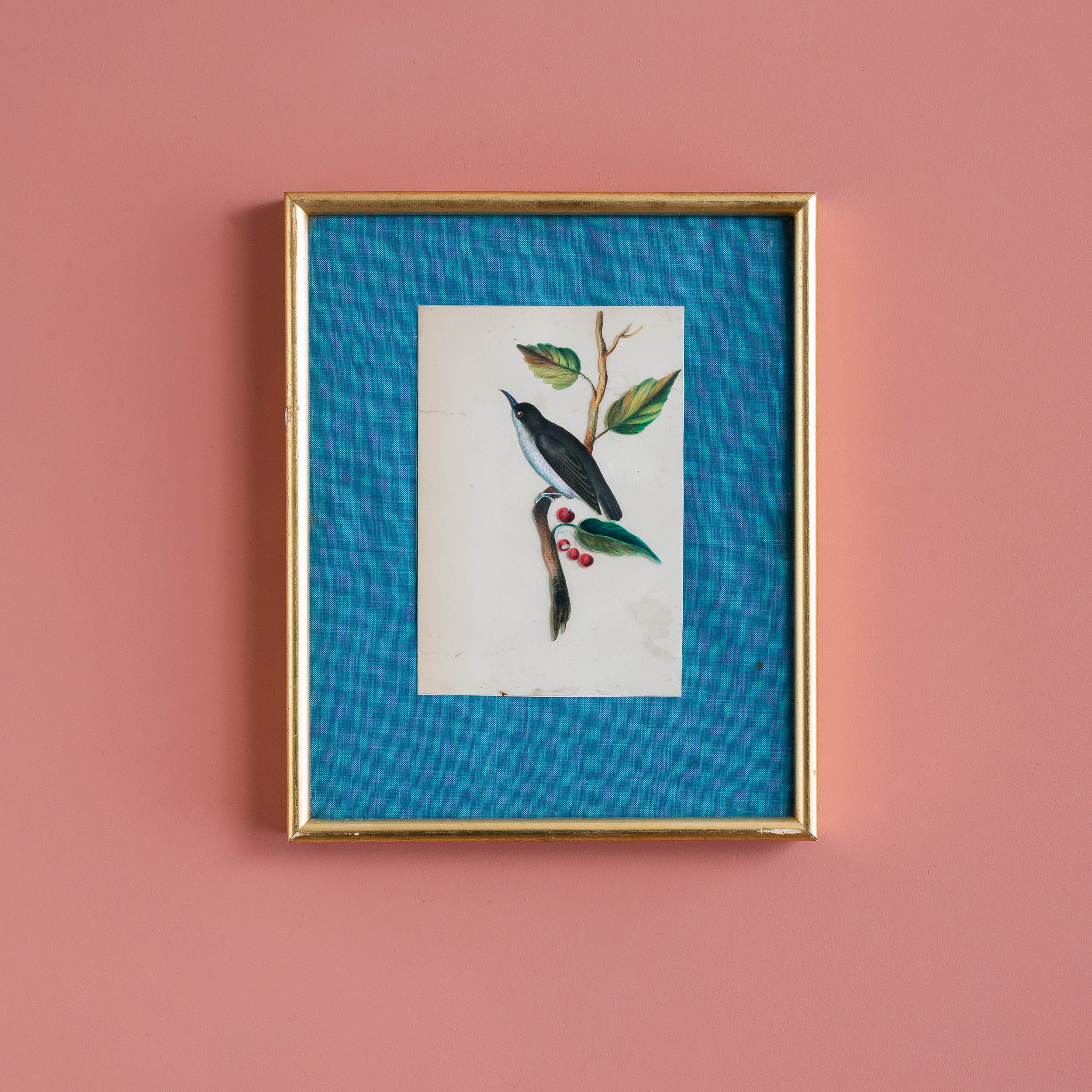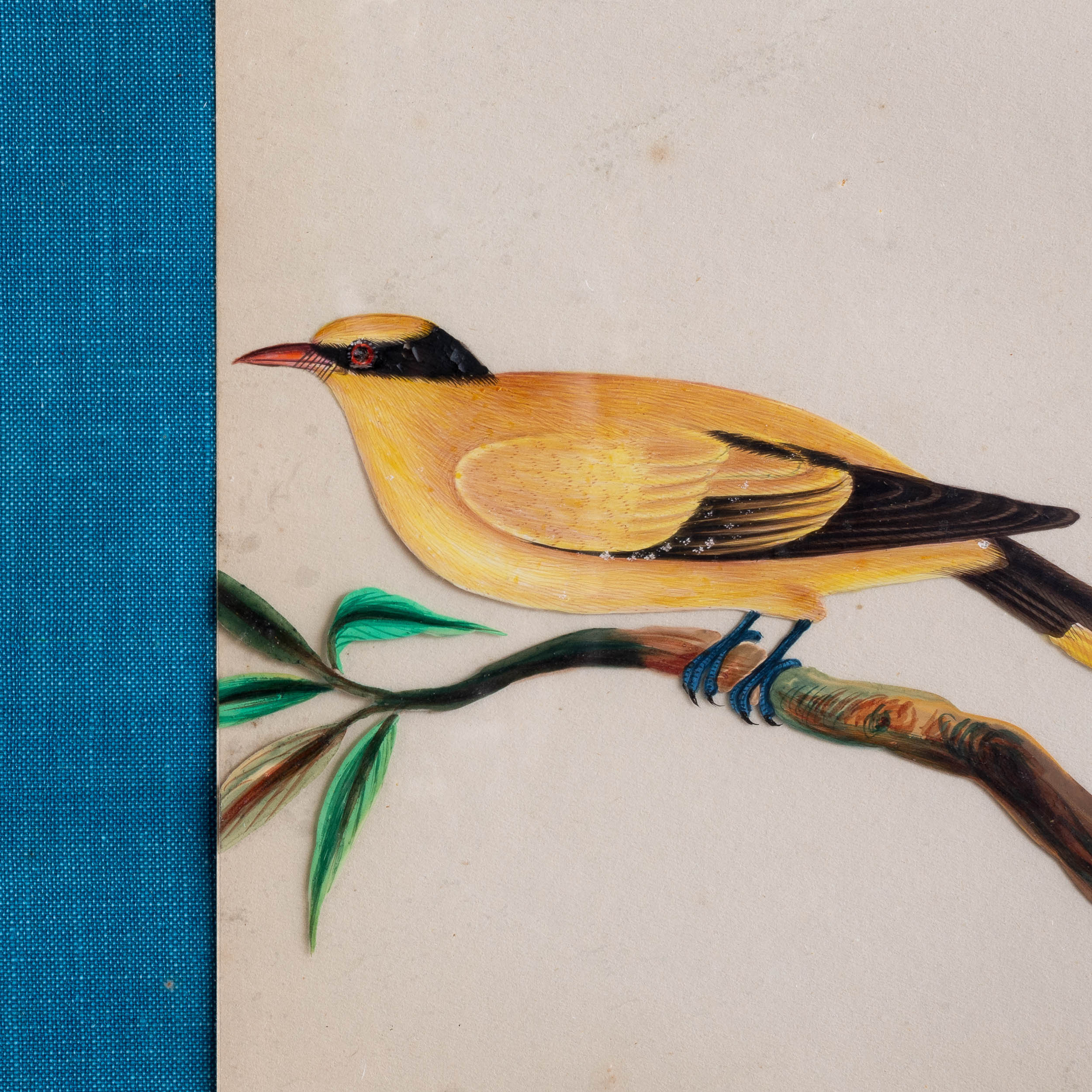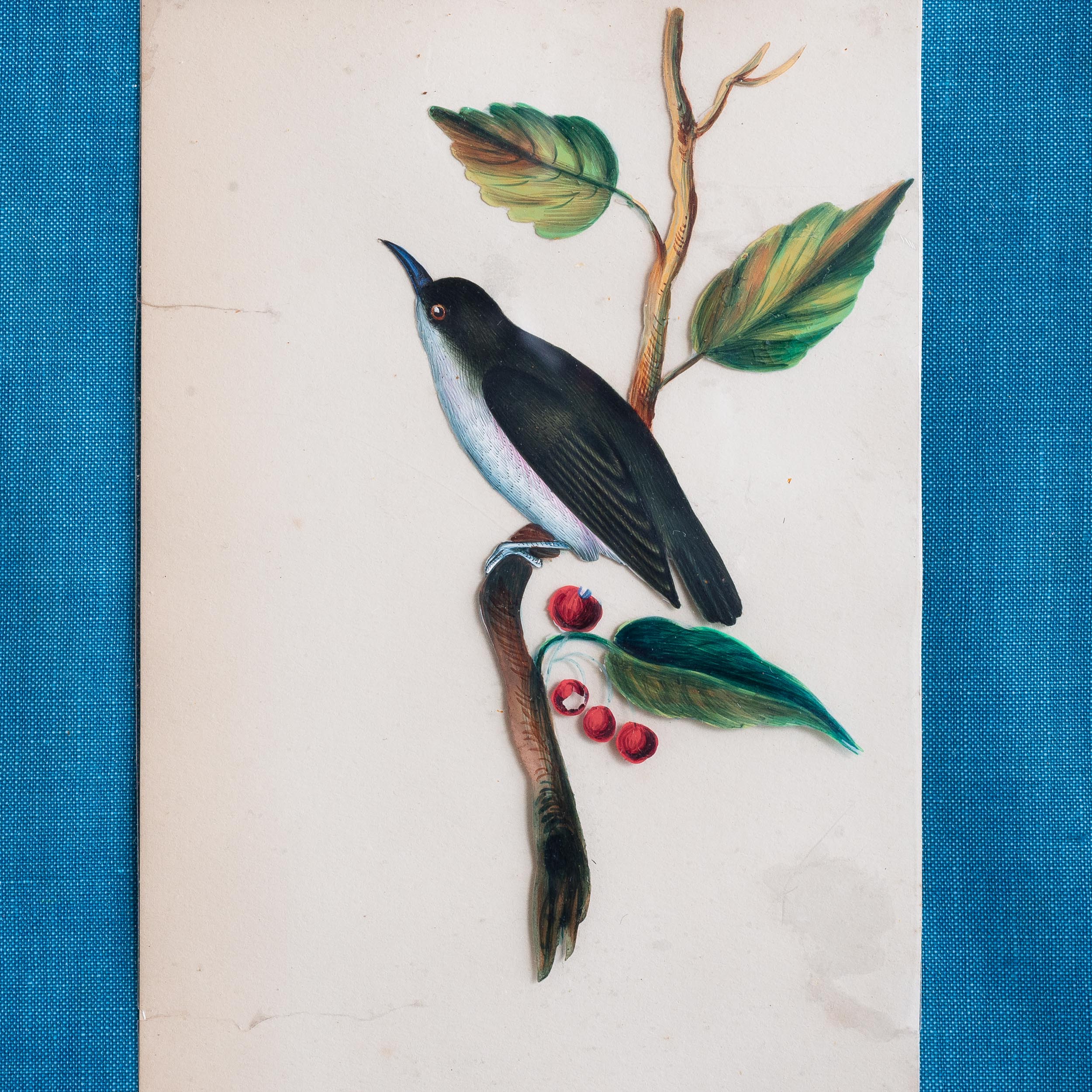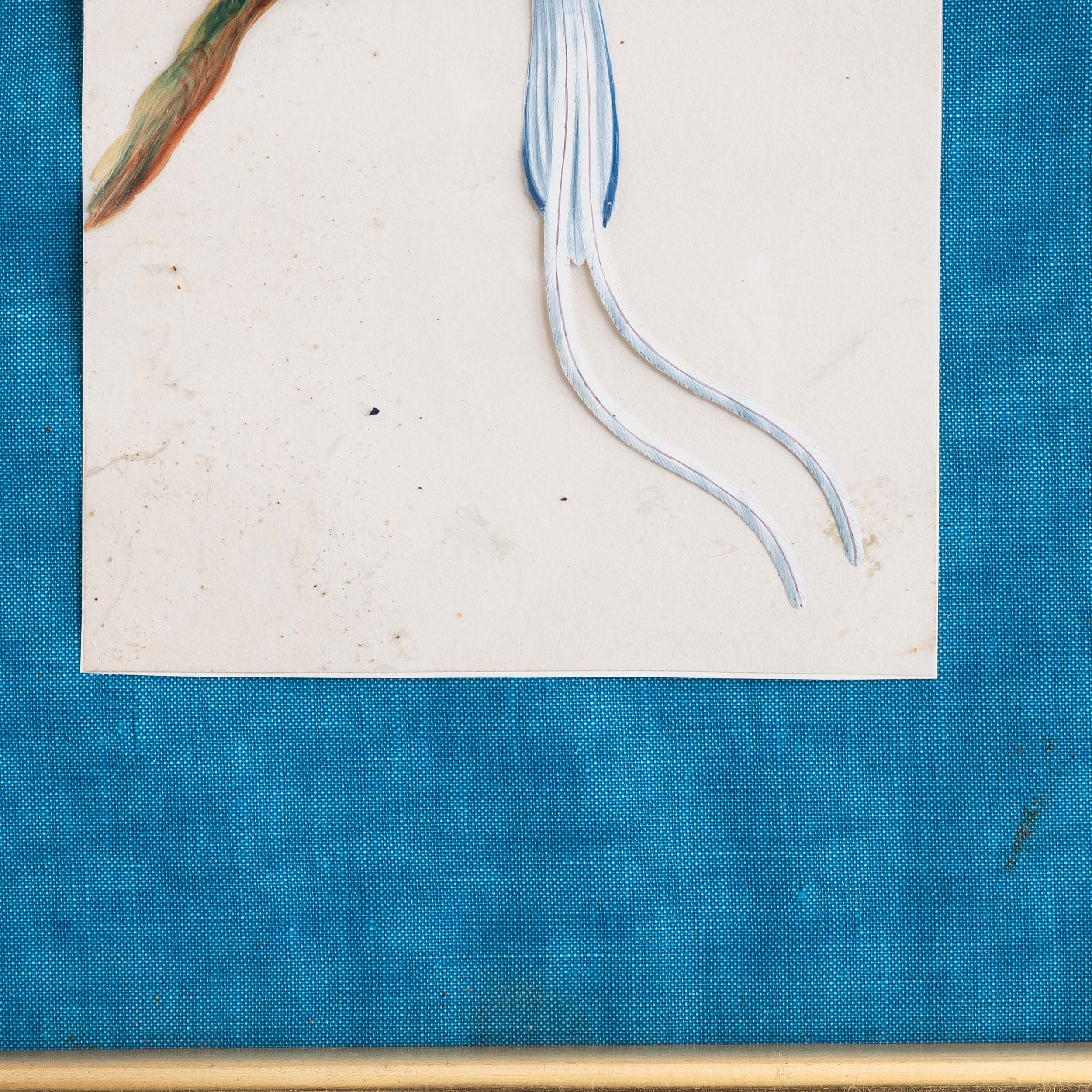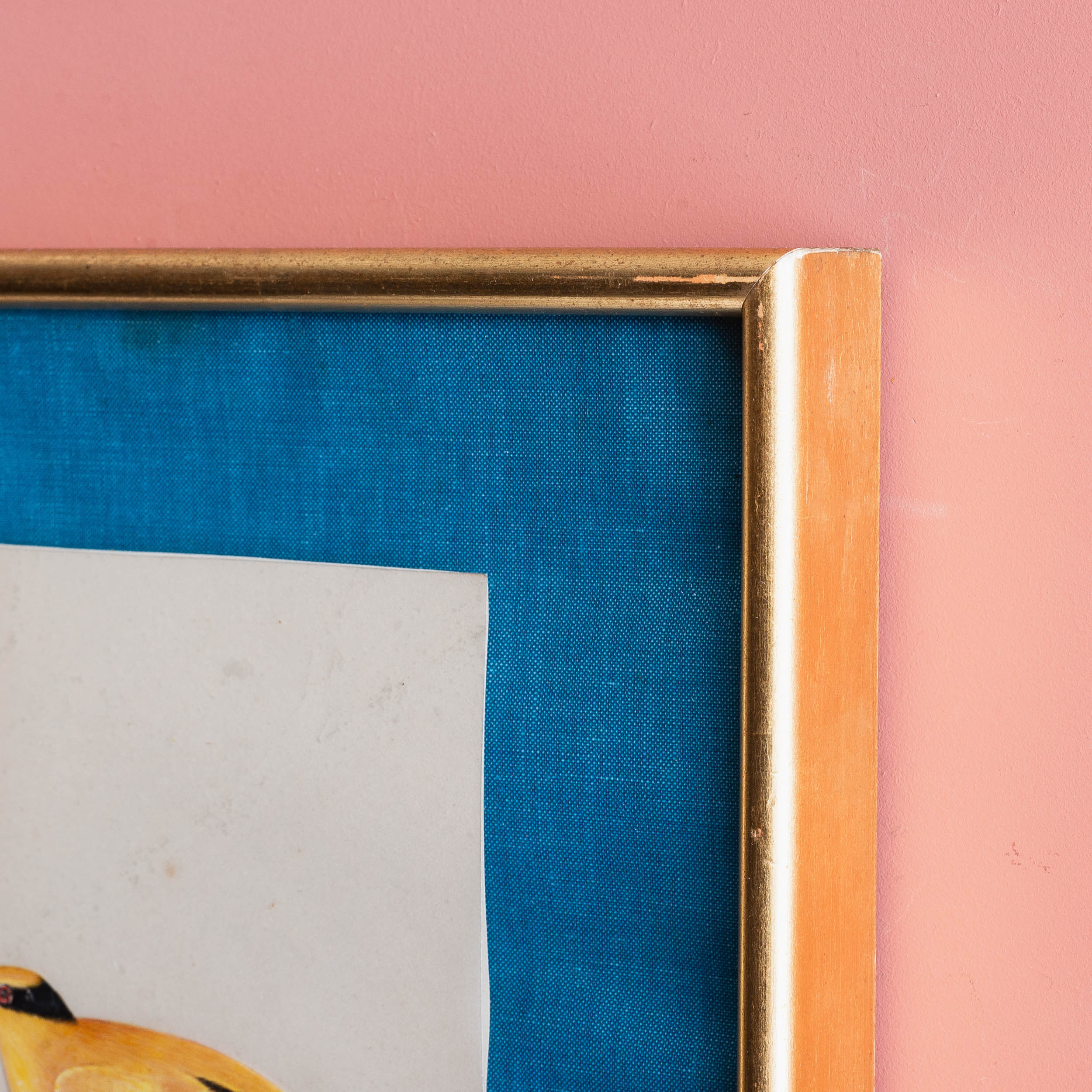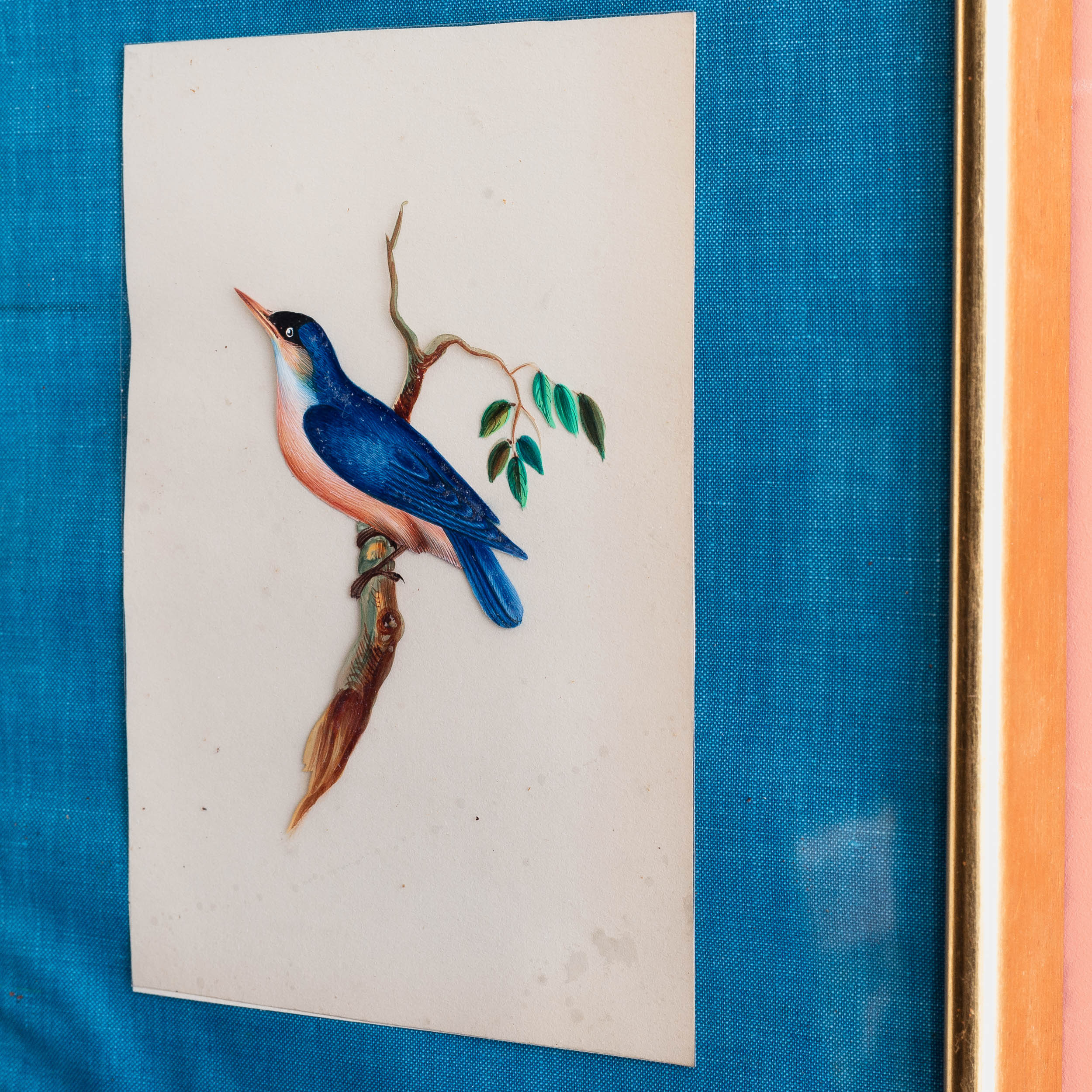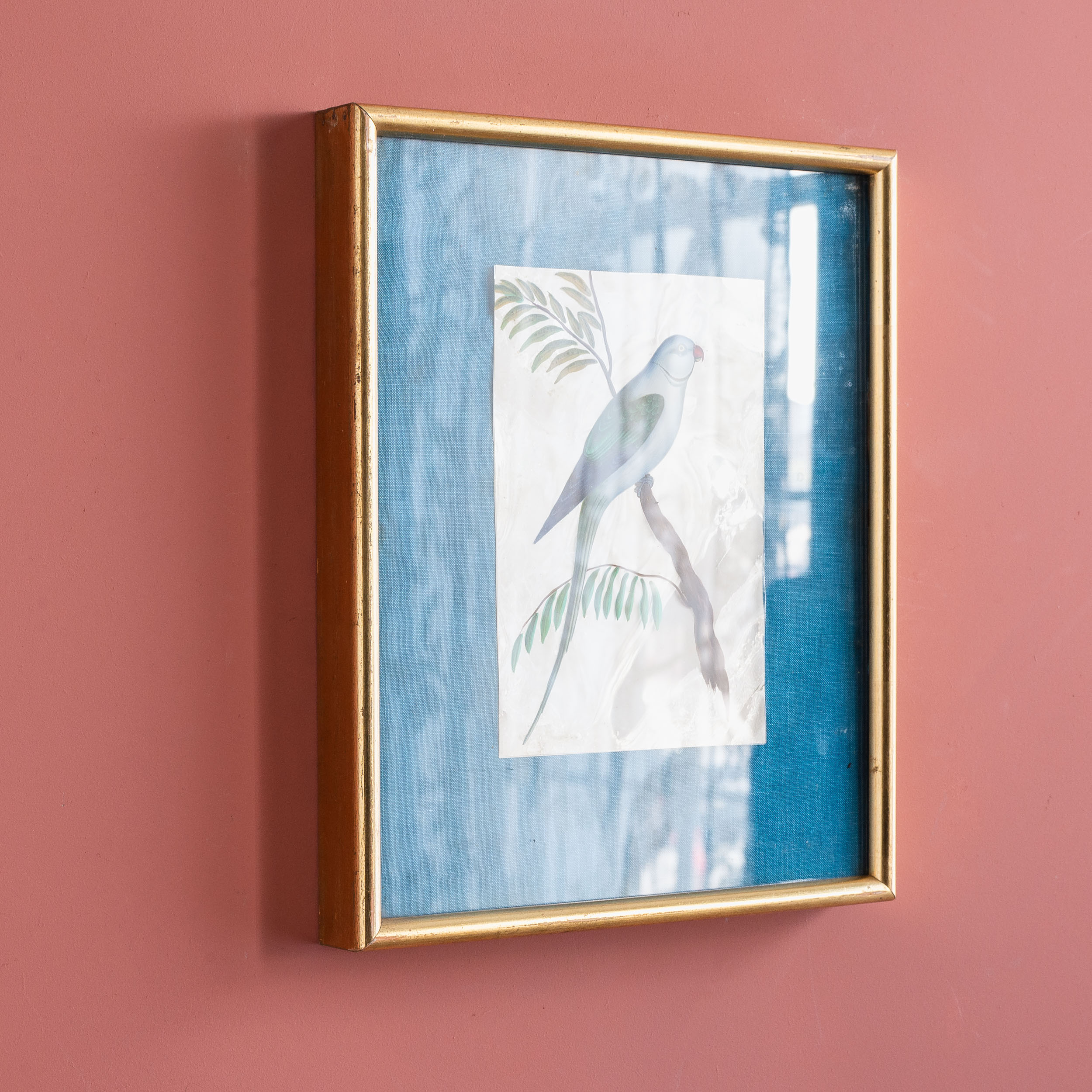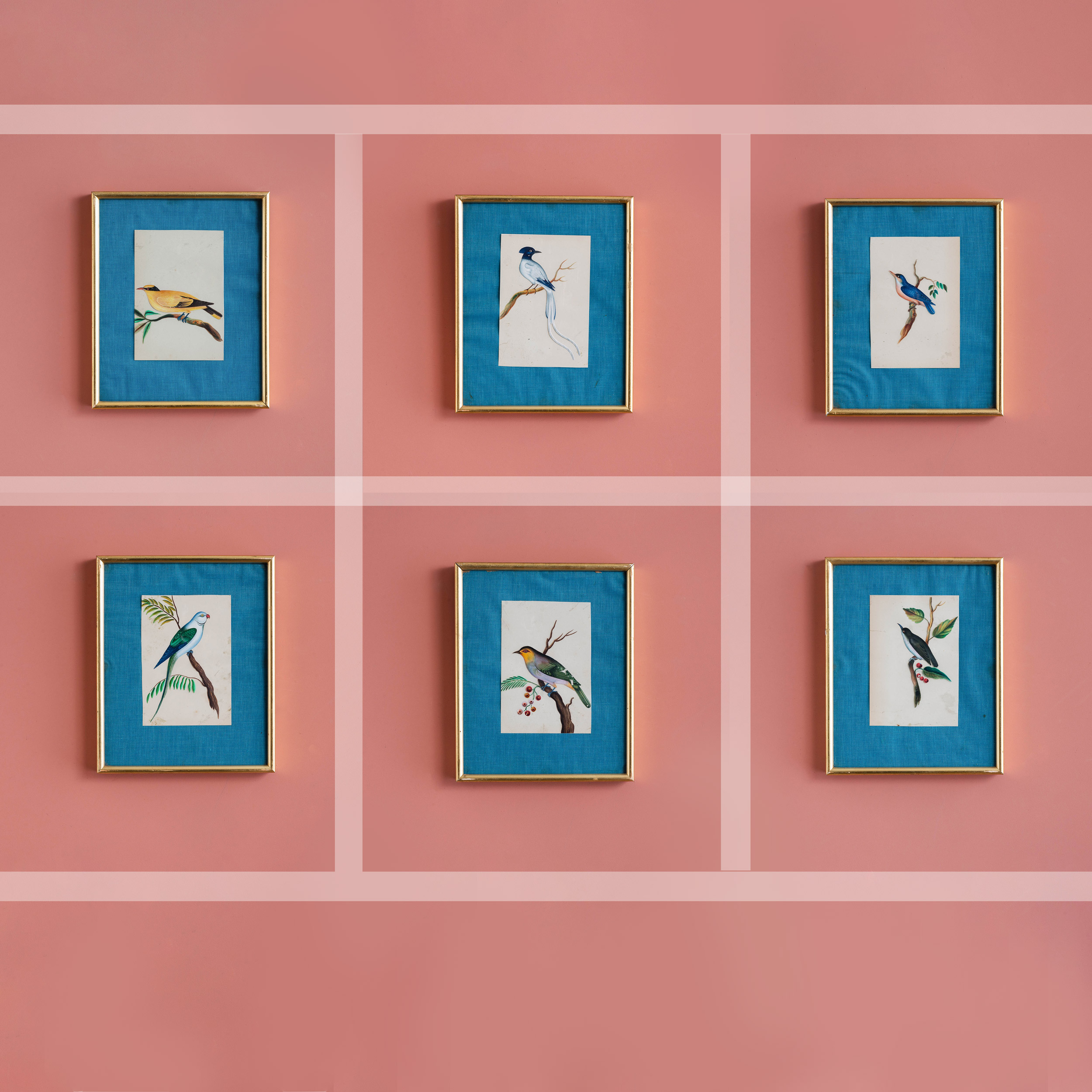Set of Indian orthniological paintings on mica
Set of six
Mica is a transparent mineral composed of complex mixtures of potassium silicates. The variety of mica used most frequently by these Indian artists is Muscovite (H2KAl3 Si04)3 which is found widely throughout south India. The mica is formed between strata of granite and the transparency of the material is a result of the heat and pressure created between the layers of rock during formation. Mica consists of many interlocking platelets, resulting in a laminar structure which can be split easily into thin sheets.
£660 set of six
In stock
These paintings were produced in standard sets for the colonial tourist market. They imitated paintings on glass, which were popular in Europe.
Set of six paintings painted on Mica c1860. Framed

